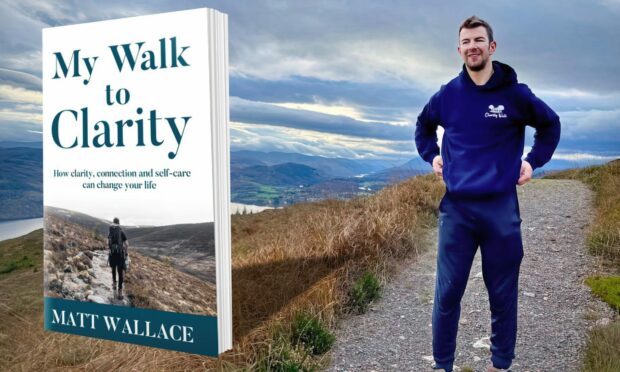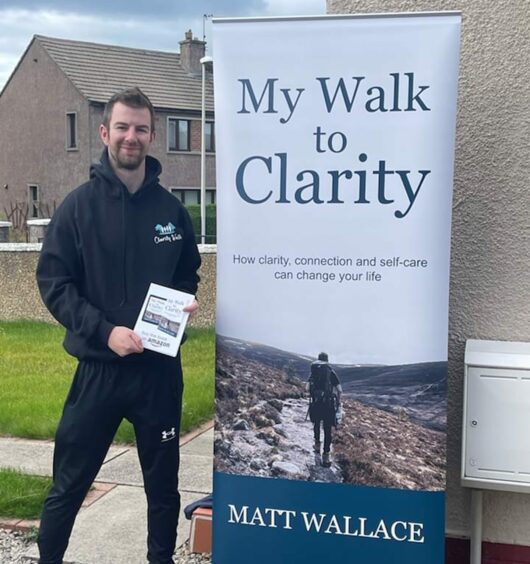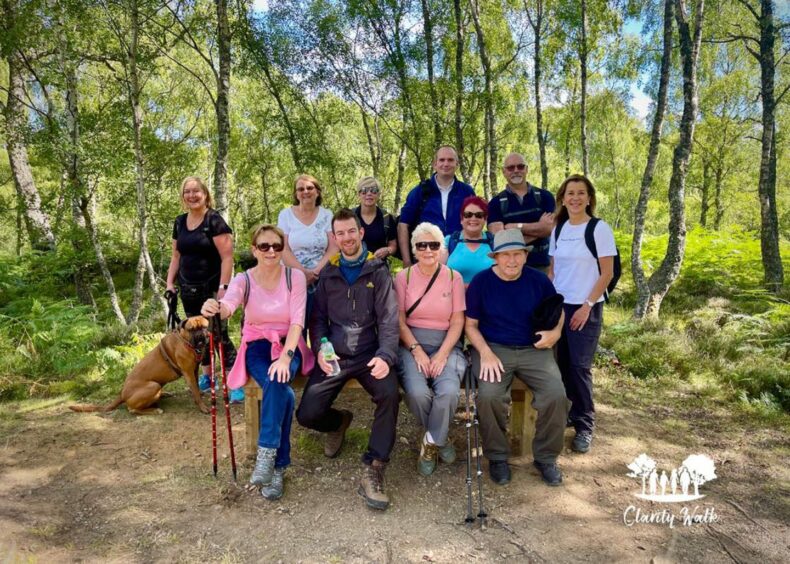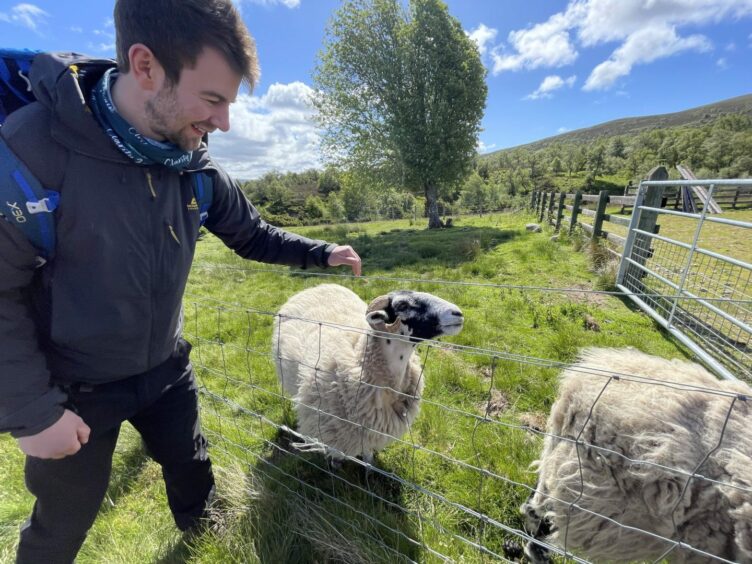The founder of a walking group set up to better mental health is releasing a book about his personal journey.
Matt Wallace, founder of Clarity Walk, will share his top tips for improving mental health in the book.
The book, entitled My Walk To Clarity is the first from Mr Wallace, who launched the social enterprise Clarity Walk in 2019.
Offering “digital detox” walks in the scenic Highlands, the aim is to improve mental well-being while getting away from social media.
Mr Wallace was able to write the book in just five months and found it a “good release” from the traumatic memories of his past.
He said: “The book is about my whole life, so it covers many topics including bullying, toxic relationships, changing careers, taking accountability for yourself and other relatable topics that are really going to help people.
“Making them aware for one and also that they can take action to improve these things.”
“The book is to inspire people who are struggling and show them that things can get better and that they are not alone.”
Mr Wallace said the pandemic has further exacerbated feelings of isolation and loneliness, with people not making “meaningful connections” with others.
Mr Wallace also recorded an audiobook to accompany the release.
Tips for a healthy mind:
With the cost of living crisis affecting many people across the country, Mr Wallace gives his top tips to cope:
Stay Connected
Making connections of any kind will help improve your mental health, whether it be friends, family or local groups you could take part in.
Suggestions include walking groups, book groups, fitness groups and wildlife groups.
Clarity Walk offers special schemes, including one for men only and teambuilding walks for better communication and teamwork.
Ask for Help
Mr Wallace says that asking for help is “not weakness” and that it helps you by offloading things on your mind.
Whether it be professional help like a therapist or a close friend who is a good listener, it helps to let people know how you are feeling.
He said: “With regards to the energy crisis, I would suggest reducing your social media exposure because the energy crisis is going to be everywhere, in the news, on social media and in your letterbox.
“Reducing your exposure to it will help you in the long run, because if you are told 10 times a day that the world is doom and gloom you are going to lose hope.”
He suggests being in nature or with friends without social media will greatly improve your mood.
Prioritise Yourself
Mr Wallace often tells people he meets that “you have to be selfish to be selfless” and that if you don’t prioritise yourself you will likely “burn out”.
It could be investing if self-care including exercise, relaxing baths, nutrition, better sleep and chill-out time to focus on your passions.
He said people should be “taking time for themselves”.
Be Accountable
Although for many people the energy crisis is having a major impact on their lives, it’s something that is not easily controllable.
Mr Wallace suggests taking control of the things you can by “fixing what we can, accept what we can’t and ignore anything that doesn’t directly affect us”.
By taking positive actions to fix certain things such as diet, exercise and socialising, all of which will improve your overall health.
“We have more control than we are led to believe. By realising you are in control of who you gave in your life, what actions you take, what you put in your body, and what you expose yourself to, means you can make changes for a happier life.”
The book will be released on October 26, available on paper and Kindle, with the audiobook due for release a week later.




Conversation